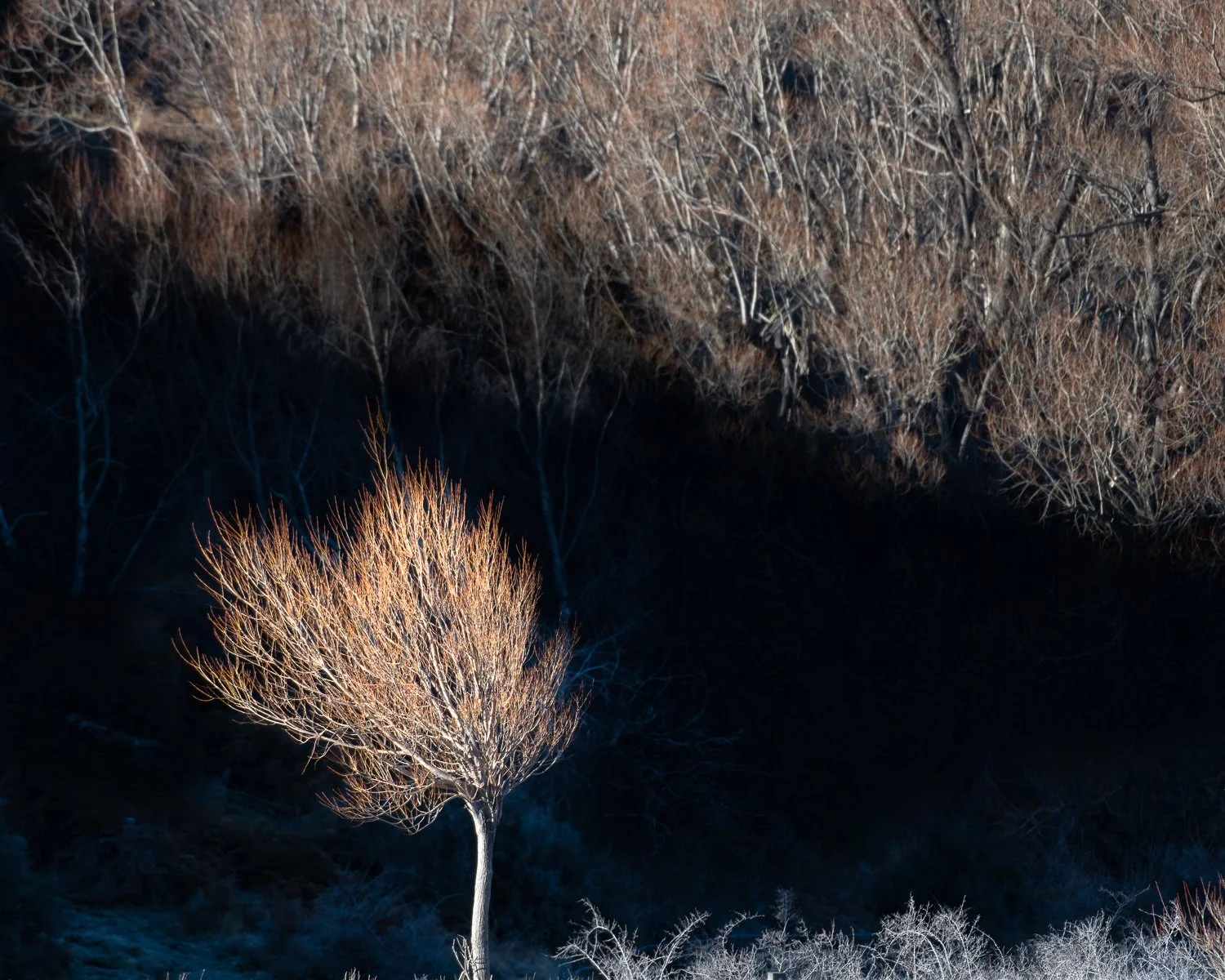Thoughts over Morning Coffee
As a creative photographer, I think more about why I photograph and what I'm trying to express than I do making or editing photographs. Each morning, I wake up early and make a coffee - fresh espresso, of course - like many things; coffee is worth taking time in its preparation, enjoying the art of creation. I'll sit on the couch for about an hour reading photography books and magazine articles from photographers I admire. Often I will just read, but sometimes I will have a creative thought process, and I have to write down a few notes; this is how most of my articles for the magazine start, a thought over morning coffee. These thoughts are often continuations on topics explored in the two ebooks I wrote with Ken Wright in 2020 on Style & Vision and Expressive Photography.
The camera looks both ways
Over the last year, I have spent a great deal of time thinking about why I make photographs, what I'm trying to express, and what stands my work apart from others who work in the same landscapes. I'm not referring to how I can create better images than them. In fact, I'm less and less worried about external validation of my work. It's more about trying to understand why I am creating images to start with. What are my photographs telling me about myself? What is the relationship with the subject that I'm trying to express?
For me, the camera unlocks more about me than the object I am photographing. And really, this is why I photograph these days. I photograph more to understand myself and express my relationship with the landscape rather than capture images representing landscapes I visit. A great photograph is like a great coffee, not simply the end product but about a process of creation. Of course, there's a technical side, a skill, but the use of this must be guided by intent. We can't simply use a set process to make the best photograph. What are we even aiming for, and how do you define the "best" photograph? As we grow, our tastes will change, our expectations will increase, and we may be less content with what was once considered good enough. So I encourage you, not just to go out and photograph, not just to spend your time editing images; spend your time thinking about your work, thinking about what you're trying to express. And when you are out photographing, enjoy the process of creation, not just the final product.
Your work will plateau
Often we will reach a plateau with our photography. As we quickly start to grow as photographers, we may create some perfect images, but there comes a time when we feel we are no longer growing, no longer moving forwards. Sometimes we might reach a point where you feel we are not shooting anything worthwhile. This is natural as we grow as a photographer; our past work may no longer represent the same challenge or sense of completion that we strive for. It can be harder to produce something "better" than our last work or tackle a new project. When you approach the landscape to create something new, it will take time to find this. While we do, we might feel that our work is suffering as we find new ways of interacting with the landscape and expressing ourselves; we are, in fact, growing and discovering ourselves through our work.
A landscape can teach you
If we visit well-known locations, we will approach them with preconceptions of the images we have already seen. It's tough to let go of these, and we must often take many trips returning to the same landscape to shoot with an open and fresh perspective. If we visit unknown locations, we go to them without preconceptions, but these locations still come with their own challenges; it might take a lot more time to define what to shoot and see the image in front of us. We will have to work hard and put in the effort to find photographs here - it won't be easy, but it will be rewarding.
Unknown locations offer us the best way to create a fresh perspective true to our style and vision. Without the influence of those who have photographed it before us, we can only pitch our image against ourselves. Returning to the same landscape, again and again, can offer us a chance to learn from it. Not all landscapes are the same, and a landscape can teach you if you find a location that is pitched at the same level as you, but that also has more that it can offer you - that you can grow into and learn from.



